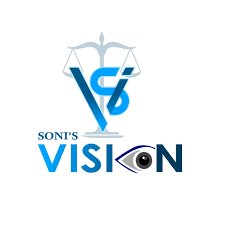Best Sports Law Lawyers in India
Share your needs with us, get contacted by law firms.
Free. Takes 2 min.
Or refine your search by selecting a city:
List of the best lawyers in India
About Sports Law in India
Sports Law in India is an amalgamation of various fields of law, such as contract law, intellectual property law, criminal law, competition law, and labour law, applied within the context of sports. As the sports industry in India has grown exponentially, so has the need for legal frameworks to address issues relating to contracts, disciplinary actions, governance, media rights, and more. The Indian legal framework for sports is still evolving but includes statutes like the National Sports Policy, various state-level sports acts, and guidelines issued by sports authorities and federations.
Why You May Need a Lawyer
There are multiple scenarios where individuals or organizations may require legal assistance in sports law:
- Contract Disputes: Athletes or organizations may face issues related to the terms of contracts, endorsement deals, or breach of contract situations.
- Doping Violations: Legal representation is essential for dealing with allegations of doping, understanding anti-doping regulations, and representing clients in hearings.
- Intellectual Property: Issues related to IP rights, such as the use of logos, images, or broadcast rights, often require legal guidance.
- Disciplinary Actions: Athletes may need representation in disciplinary proceedings initiated by sports federations or associations.
- Due Diligence for Clubs: Legal expertise is required for club/church agreements, player transfers, sponsorship agreements, and more.
Local Laws Overview
Sports law in India is governed by a mix of federal and state laws, as well as guidelines from sports bodies. Key aspects include:
- National Sports Policy: Outlines the objectives and the framework for the promotion of sports in India.
- Sports Authority of India (SAI): Plays a crucial role in sports promotion and infrastructure development.
- The Board of Control for Cricket in India (BCCI): Although not a government body, it regulates cricket, which is vital due to the sport's popularity.
- Anti-Doping Regulations: Governed by the National Anti-Doping Agency (NADA), which sets rules in line with the World Anti-Doping Agency (WADA).
- State Sports Acts: Various states have their own legislation regarding the development and regulation of sports.
Frequently Asked Questions
What is the role of the Sports Law and Welfare Association of India (SLAWIN)?
SLAWIN aims to promote sports law as a legal discipline and aid in the welfare and protection of the rights of athletes and other stakeholders in the Indian sports sector.
How does the Indian legal system address contract disputes in sports?
Contract disputes in sports are generally addressed through civil courts or arbitration, depending on the terms of the contract. Many sports agreements include arbitration clauses which facilitate dispute resolution by designated arbitrators.
What are the common legal challenges faced by athletes in India?
Athletes often face issues related to contractual obligations, sponsorship deals, intellectual property rights, image rights, disciplinary hearings, and anti-doping regulations.
How are doping cases handled under Indian Sports Law?
Doping cases are governed by the National Anti-Doping Agency (NADA). Athletes found violating these are subjected to disciplinary proceedings and may face suspensions or bans, depending on the severity of the infringement.
Is there a legal requirement for sports federations in India to register with the government?
Sports federations are generally required to register as societies under the Societies Registration Act, 1860, or state acts. Recognition by the Ministry of Youth Affairs and Sports is also crucial for certain funding and representation.
What are the remedies available for breach of sports contracts?
Remedies for breach typically include damages, specific performance, or injunctions. The choice depends on the nature of the breach and the terms specified in the contract.
How are intellectual property issues managed in sports law?
Intellectual property aspects like trademarks for team logos, broadcasting rights, and player image rights are protected under relevant IP laws in India, such as the Trade Marks Act and Copyright Act.
What legal mechanisms protect the rights of players in India?
Players’ rights are protected through numerous mechanisms, including contractual obligations enforced by civil law, specific ministry guidelines, and industry standards set by sports federations.
Who can represent athletes in legal matters?
Athletes are typically represented by sports lawyers, agents, or legal firms specializing in sports law, who can provide expertise in navigating contracts, disputes, and other legal intricacies.
Are there any governmental bodies that oversee sports law in India?
The Ministry of Youth Affairs and Sports, along with the Sports Authority of India, play a significant role in the governance and formulation of policies related to sports law.
Additional Resources
For those seeking further information or assistance, the following resources may prove valuable:
- Ministry of Youth Affairs and Sports: Offers insight into national sports policies and government initiatives.
- National Sports Federations: Each sport has its own federation providing regulations and guidelines.
- Sports Authority of India (SAI): A body supporting athletes and sports infrastructure.
- National Anti-Doping Agency (NADA): Offers guidelines on anti-doping regulations.
- Sports Law and Welfare Association of India (SLAWIN): Provides resources and support related to sports law.
Next Steps
If you're considering legal assistance in sports law, consider the following steps:
- Identify your specific legal issue and gather all relevant documentation.
- Seek recommendations for reputable sports lawyers or firms specializing in sports law.
- Arrange consultations to discuss potential legal strategies and understand fee structures.
- Ensure any lawyer you engage has experience dealing with cases similar to your situation.
- Stay informed about developments in your case and maintain open communication with your legal advisor.
Lawzana helps you find the best lawyers and law firms in India through a curated and pre-screened list of qualified legal professionals. Our platform offers rankings and detailed profiles of attorneys and law firms, allowing you to compare based on practice areas, including Sports Law, experience, and client feedback.
Each profile includes a description of the firm's areas of practice, client reviews, team members and partners, year of establishment, spoken languages, office locations, contact information, social media presence, and any published articles or resources. Most firms on our platform speak English and are experienced in both local and international legal matters.
Get a quote from top-rated law firms in India — quickly, securely, and without unnecessary hassle.
Disclaimer:
The information provided on this page is for general informational purposes only and does not constitute legal advice. While we strive to ensure the accuracy and relevance of the content, legal information may change over time, and interpretations of the law can vary. You should always consult with a qualified legal professional for advice specific to your situation.
We disclaim all liability for actions taken or not taken based on the content of this page. If you believe any information is incorrect or outdated, please contact us, and we will review and update it where appropriate.
Browse sports law law firms by city in India
Refine your search by selecting a city.
















